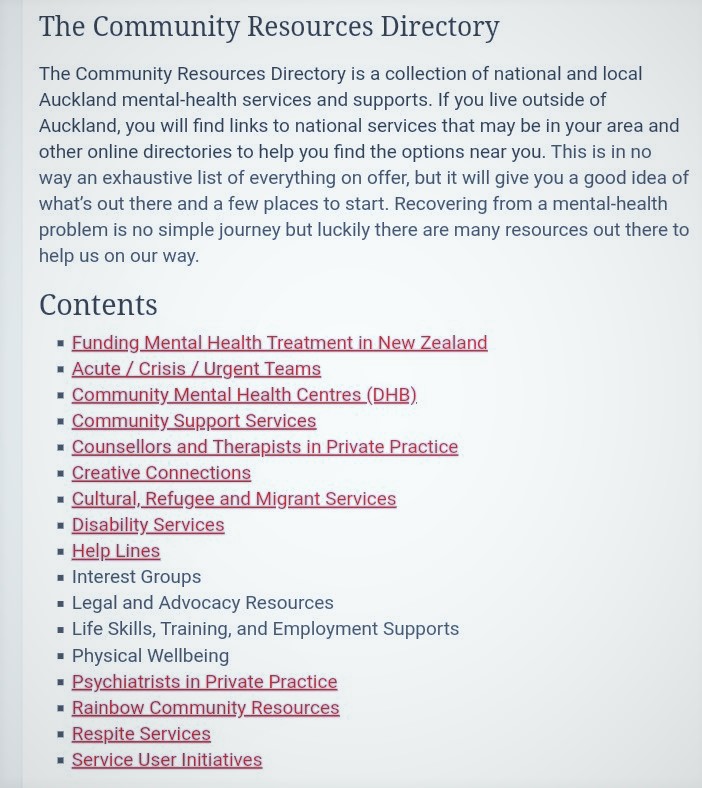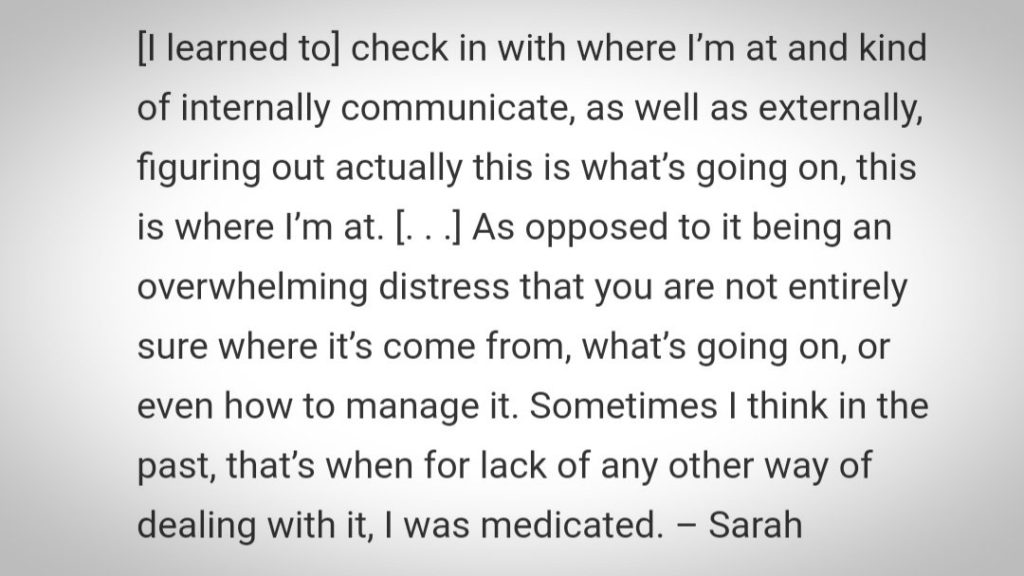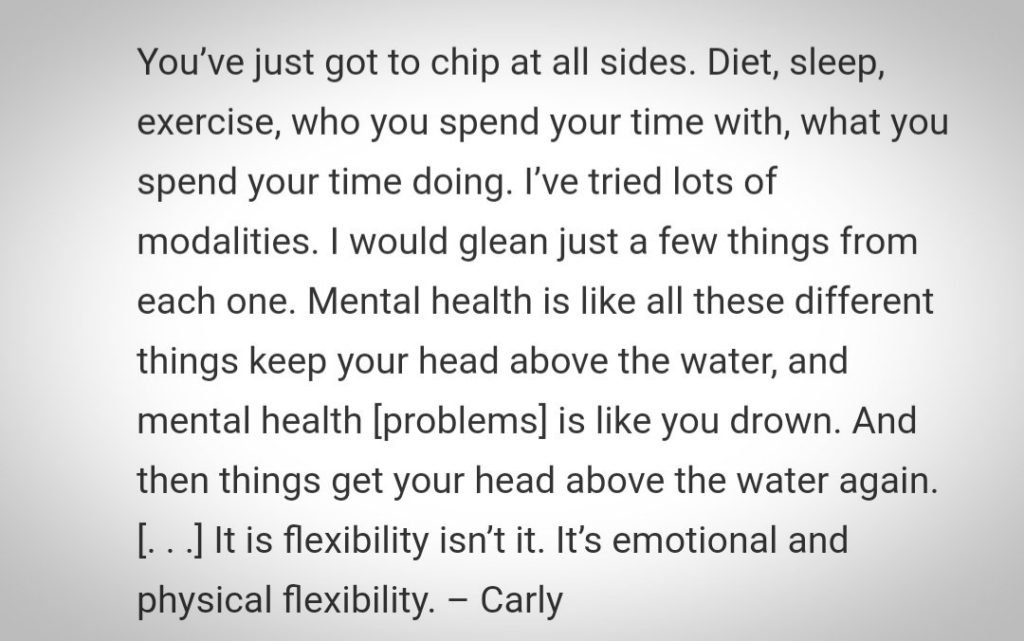We Can’t Keep Treating Anxiety From Complex Trauma the Same Way We Treat Generalized Anxiety: Vicki Peterson writes “I’ve been living with the effects of complex trauma for a long time, but for many years, I didn’t know what it was. […] For those who have experienced trauma, anxiety comes from an automatic physiological response to what has actually, already happened. The brain and body have already lived through “worst case scenario” situations, know what it feels like and are hell-bent on never going back there again. The fight/flight/ freeze response goes into overdrive. It’s like living with a fire alarm that goes off at random intervals 24 hours a day. It is extremely difficult for the rational brain to be convinced “that won’t happen,” because it already knows that it has happened, and it was horrific.” Read more here.
Man Lessons – How to make a documentary about transitioning: “Over six years, Ben Sarten filmed Adam Rohe (who was assigned female at birth) on his journey into manhood, forming a friendship that to them has become as important as the documentary itself.” Read more here.
I was diagnosed with acute psychosis at 19. Here’s what came next:Kris Herbert reflects on her tumultuous mental health journey to share what she’s learnt along the way. She writes,”Our mental wellbeing is not fixed. It’s a shifting continuum and at the edges, we each have our limits. We all also have access to tools like exercise and meditation, good food and, hopefully, someone to talk to.” Read more here.
Researchers Find Lack of Evidence, Call for Halt to ECT: “A new review, published in Ethical Human Psychology and Psychiatry, re-assesses studies that compare electroconvulsive therapy (ECT) with placebo treatment for depression. The analysis also assesses the only five available meta-analyses that claim that ECT is effective.” In a press release, John Read, the lead author says “This body of research is of the lowest quality of any I have seen in my 40-year career.” Read more here. In related news, dozens of people have sued the NHS after experiencing a slew of serious adverse effects that they were not informed of before they consented to ECT procedures.
Inside Internal Family Systems Therapy: In this article, Ben Blum gives a detailed description of Internal Family Systems Therapy (IFS), including both clinician and service-user perspectives. Blum writes,”IFS therapy is upending the thinking around schizophrenia, depression, OCD, and more. […] In IFS, mental health symptoms like anxiety, depression, paranoia, and even psychosis were regarded not as impassive biochemical phenomena but as emotional events under the control of unconscious “parts” of the patient — which they could learn to interact with directly.” Read more here.
Find more on the Engage Facebook page.
www.facebook.com/engageaotearoa/









